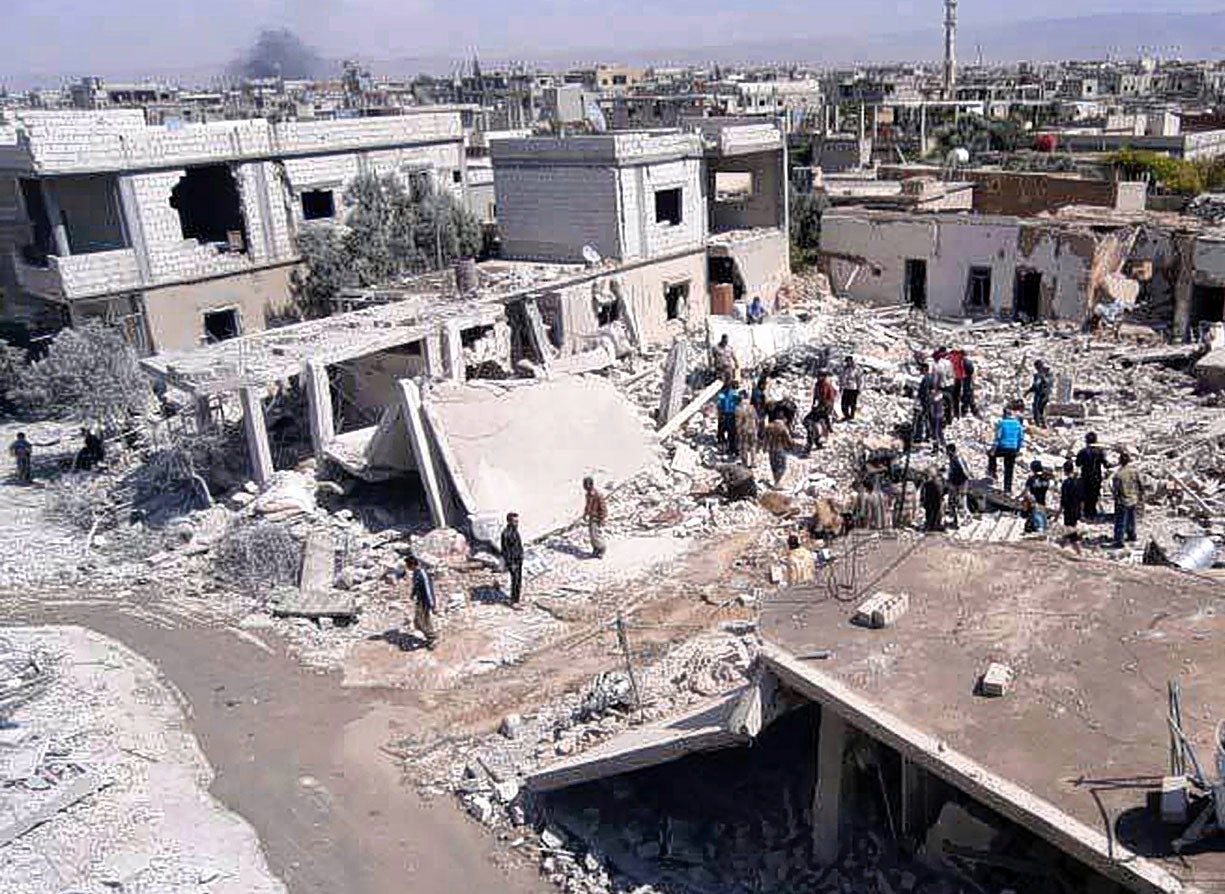Divided Europe imperils Syrian arms embargo
With only days before sanctions expire, foreign ministers argue over sending weapons to rebels

Your support helps us to tell the story
From reproductive rights to climate change to Big Tech, The Independent is on the ground when the story is developing. Whether it's investigating the financials of Elon Musk's pro-Trump PAC or producing our latest documentary, 'The A Word', which shines a light on the American women fighting for reproductive rights, we know how important it is to parse out the facts from the messaging.
At such a critical moment in US history, we need reporters on the ground. Your donation allows us to keep sending journalists to speak to both sides of the story.
The Independent is trusted by Americans across the entire political spectrum. And unlike many other quality news outlets, we choose not to lock Americans out of our reporting and analysis with paywalls. We believe quality journalism should be available to everyone, paid for by those who can afford it.
Your support makes all the difference.A raft of sanctions aimed at hobbling the Syrian regime is at risk of collapse, according to diplomats, unless deeply divided European foreign ministers can reach a consensus tomorrow on amending a ban on arming the opposition.
Britain's Foreign Secretary, William Hague, is expected to argue at the Brussels meeting that amending the embargo to allow EU governments to arm moderate rebel groups would send a strong signal to President Bashar al-Assad that the military balance was shifting.
France also backs his position, with support from Italy and Cyprus, say officials close to the negotiations. But other EU nations, led by Austria, warn that it would be impossible to keep the weapons out of the hands of extremists, and could scupper a process aimed at finding a political solution to a conflict that has left more than 80,000 people dead in two years.
The meeting will be set against a backdrop of heavy fighting for the Syrian town of Qusair, close to the Lebanese border. The army, which began an offensive to recapture Qusair last Sunday, says it has launched a fresh attack. The town is also under bombardment from Lebanese Hezbollah militants, who back Syria's government.
Rebels in the town reported heavy bombardment, including two ground-to-ground missiles and an air strike, as well as artillery and rocket fire. "It's like they're trying to destroy the city house by house," Malek Ammar, an opposition activist, told Reuters news agency. State media said the army had launched a three-pronged offensive in the north, centre and south of Qusair, and was making big advances, killing many rebel fighters.
If there is no unanimity on amending the arms embargo, the entire package of EU sanctions against both Assad and the opposition, in place since 2011, will automatically expire at the end of this month. While a new set of sanctions against the regime could be drawn up within days, Alexander Schallenberg, speaking for Austria's foreign minister, warned that the political signal "would be disastrous".
"Neither the UK nor Paris nor anybody can have an interest in having a solution on Monday where no sanctions are in place any more against Assad from 1 June: no asset bans, no visa freeze," he told The Independent on Sunday.
British diplomats have stated that the UK position is to push for an amendment to the embargo that keeps sanctions against the regime in place. They stress that no decision has yet been taken in London to arm rebel factions.
There are deep divides in Europe over how an amendment can be achieved without escalating the conflict. The Scandinavian nations, Poland and the Czech Republic are also believed to be resisting amendments, with the Germans trying to foster a compromise. Options include authorising a list of weapons still banned from the conflict zone, or a provision for arms "for the protection of civilians".
But one European diplomat warned that sending weapons would go against the EU's fundamental aim of preventing the proliferation of arms. The complexity of the Syrian opposition, with many rebel factions linked to extremist Islamist groups, reinforces these concerns.
"It would be the first conflict where we pretend we could create peace by delivering arms," the diplomat said. "If you pretend to know where the weapons will end up, then it would be the first war in history where this is possible. We have seen it in Bosnia, Afghanistan and Iraq. Weapons don't disappear; they pop up where they are needed."
French officials, however, have said they have the capacity to monitor weapons to make sure they do not end up in the wrong hands.
Rolling over the embargo for one month to give a US/Russia-led peace process the chance to bear fruit is another option. The opposition and the regime have agreed in principle to attend the Geneva 2 peace conference next month. But some want to amend the ban before then to strengthen the hand of moderate forces within Syria's opposition.
"It is important the opposition feel they can come to Geneva 2, believing they've got international support," said a British diplomat.
Others believe it could have the opposite effect and cause President Assad to snub the conference.
Join our commenting forum
Join thought-provoking conversations, follow other Independent readers and see their replies
Comments